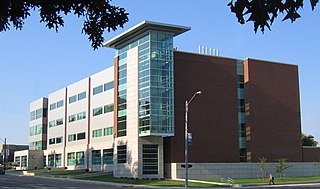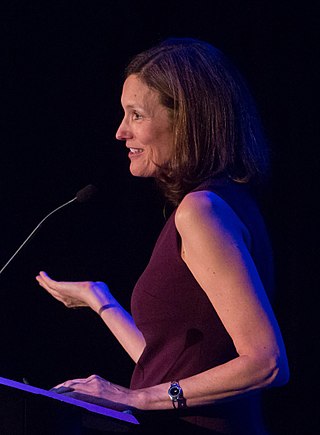
The Merck Manual of Diagnosis and Therapy, referred to as The Merck Manual, is the world's best-selling medical textbook, and the oldest continuously published English language medical textbook. First published in 1899, the current print edition of the book, the 20th Edition, was published in 2018. In 2014, Merck decided to move The Merck Manual to digital-only, online publication, available in both professional and consumer versions; this decision was reversed in 2017, with the publication of the 20th edition the following year. The Merck Manual of Diagnosis and Therapy is one of several medical textbooks, collectively known as The Merck Manuals, which are published by Merck Publishing, a subsidiary of the pharmaceutical company Merck Co., Inc. in the United States and Canada, and MSD in other countries in the world. Merck also formerly published The Merck Index, An Encyclopedia of Chemicals, Drugs, and Biologicals.

The Columbia University College of Physicians and Surgeons is the medical school of Columbia University, located at the Columbia University Irving Medical Center in the Washington Heights neighborhood of Manhattan.

The University of Tennessee Health Science Center (UTHSC) is a public medical school in Memphis, Tennessee. It includes the Colleges of Health Professions, Dentistry, Graduate Health Sciences, Medicine, Nursing, and Pharmacy. Since 1911, the University of Tennessee Health Science Center has educated nearly 57,000 health care professionals. As of 2010, U.S. News & World Report ranked the College of Pharmacy 17th among American pharmacy schools.

NewYork-Presbyterian/Columbia University Irving Medical Center (NYP/CUIMC), also known as the Columbia University Irving Medical Center (CUIMC), is an academic medical center and the largest campus of NewYork-Presbyterian Hospital. It includes Columbia University Vagelos College of Physicians and Surgeons, College of Dental Medicine, School of Nursing and Mailman School of Public Health, as well as the Morgan Stanley Children's Hospital, the New York State Psychiatric Institute, the Audubon Biomedical Research Park, and other institutions.
Continuing medical education (CME) is continuing education (CE) that helps those in the medical field maintain competence and learn about new and developing areas of their field. These activities may take place as live events, written publications, online programs, audio, video, or other electronic media. Content for these programs is developed, reviewed, and delivered by faculty who are experts in their individual clinical areas. Similar to the process used in academic journals, any potentially conflicting financial relationships for faculty members must be both disclosed and resolved in a meaningful way. However, critics complain that drug and device manufacturers often use their financial sponsorship to bias CMEs towards marketing their own products.
The University of Cincinnati Academic Health Center (AHC) is a collection of health colleges and institutions of the University of Cincinnati, Cincinnati, Ohio. It trains health care professionals and provides research and patient care. AHC has strong ties to UC Health, which includes the University of Cincinnati Medical Center and West Chester Hospital.

Eric Jeffrey Topol is an American cardiologist, scientist, and author. He is the founder and director of the Scripps Research Translational Institute, a professor of Molecular Medicine and Executive Vice-President at Scripps Research Institute, and a senior consultant at the Division of Cardiovascular Diseases at Scripps Clinic in La Jolla, California. He has published three bestseller books on the future of medicine: The Creative Destruction of Medicine (2010), The Patient Will See You Now (2015), and Deep Medicine: How Artificial Intelligence Can Make Healthcare Human Again (2019). He was commissioned by the UK from 2018–2019 to lead planning for the National Health Service's future workforce, integrating genomics, digital medicine, and artificial intelligence.

Sue Desmond-Hellmann is an American oncologist and biotechnology leader who served as the Chief Executive Officer of the Bill & Melinda Gates Foundation from 2014 to 2020. She was previously Chancellor of the University of California, San Francisco (UCSF), the first woman to hold the position, and Arthur and Toni Rembe Rock Distinguished Professor, and before that president of product development at Genentech, where she played a role in the development of the first gene-targeted cancer drugs, Avastin and Herceptin.

Jeffrey Alan Lieberman is an American psychiatrist who specializes in schizophrenia and related psychoses and their associated neuroscience (biology) and pharmacological treatment. He was principal investigator for CATIE, the largest and longest independent study ever funded by the United States National Institute of Mental Health to examine existing pharmacotherapies for schizophrenia. He was president of the American Psychiatric Association from May 2013 to May 2014.
Lawton R. Burns is an American business theorist, Professor of Management and the Chairperson of the Health Care Management Department of The Wharton School of The University of Pennsylvania, and a Faculty Co-director for the Roy and Diana Vagelos Program in Life Sciences and Management.
Sheldon Jerome Segal was an American embryologist and biochemist who spent his entire career working on contraception, and made major innovations in the field of long-lasting alternatives, with Chilean physician Horacio Croxatto, including in the creation of Norplant, the first major development advance in birth control since the birth control pill.

Merck & Co., Inc. is an American multinational pharmaceutical company headquartered in Rahway, New Jersey, and is named for Merck Group, founded in Germany in 1668, of whom it was once the American arm. The company does business as Merck Sharp & Dohme or MSD outside the United States and Canada. It is one of the largest pharmaceutical companies in the world, generally ranking in the global top five by revenue.
The London Declaration on Neglected Tropical Diseases was a collaborative disease eradication programme launched on 30 January 2012 in London. It was inspired by the World Health Organization roadmap to eradicate or prevent transmission for neglected tropical diseases by the year 2020. Officials from WHO, the World Bank, the Bill & Melinda Gates Foundation, the world's 13 leading pharmaceutical companies, and government representatives from US, UK, United Arab Emirates, Bangladesh, Brazil, Mozambique and Tanzania participated in a joint meeting at the Royal College of Physicians to launch this project. The meeting was spearheaded by Margaret Chan, Director-General of WHO, and Bill Gates, Co-Chair of the Bill & Melinda Gates Foundation.

Eve Elizabeth Slater is an American physician who served as the United States Assistant Secretary for Health and Human Services under President George W. Bush from 2002 to 2003. Slater received her B.A from Vassar College in 1967 and M.D. from the Columbia University College of Physicians and Surgeons in 1971. She completed residency in internal medicine and fellowship in cardiology at the Massachusetts General Hospital, Boston, MA.In 1976, she was appointed the Chief Resident in Medicine at Massachusetts General Hospital, the first woman to appointed to this position. Dr. Slater is currently Professor of Clinical Medicine at Columbia Vagelos College of Physicians and Surgeons (P&S), where she has taught for over 35 years. She is board certified in internal medicine and cardiology and a fellow of the American College of Cardiology.(FACC). At MGH, she led the Hypertension Unit, as Assistant Professor of Medicine. Harvard Medical School.

Ann E. Weber is the senior vice president for drug discovery at Kallyope Inc. in New York City. She previously worked with Merck Research Laboratories (MRL), joining the company in 1987 and retiring from the position of vice president for lead optimization chemistry in 2015. She has helped develop more than 40 drug candidates including FDA-approved treatments for Type 2 diabetes. She has received a number of awards, including the Perkin Medal (2017) and has been inducted into the ACS Division of Medicinal Chemistry’s MEDI Hall of Fame.

Nancy A. Thornberry is the founding CEO and current chair, R&D at Kallyope Inc. in New York City. She previously worked with Merck Research Laboratories (MRL), joining the company in 1979 as a biochemist and retiring from the position of senior vice president and franchise head, diabetes and endocrinology in 2013.

Lee Goldman is an American cardiologist and educator at Columbia University, where he is professor of medicine at the Vagelos College of Physicians and Surgeons, professor of epidemiology at the Mailman School of Public Health, and dean emeritus of the Faculties of Health Sciences and Medicine. From 2006 to 2020 he served as executive vice president and dean of the Faculties of Health Sciences and Medicine, chief executive officer of the Columbia University Irving Medical Center, and Harold and Margaret Hatch Professor of the university. Before moving to Columbia, he was chair of the department of medicine at the University of California, San Francisco. He received his B.A., M.D., and M.P.H. degrees from Yale University.
Donald W. Landry is an American scientist who is the Hamilton Southworth Professor of Medicine, Chair of the Department of Medicine at Columbia University and Physician-in-Chief at NewYork-Presbyterian Hospital/Columbia University Irving Medical Center since 2008. He is also past founding director of the Division of Experimental Therapeutics, and past director of the Division of Nephrology. Landry completed his Ph.D. in organic chemistry with R.B. Woodward at Harvard University in 1979 and then obtained the M.D. degree from Columbia University in 1983. After completing his residency in internal medicine at the Massachusetts General Hospital/Harvard Medical School, he returned to Columbia for training as an NIH Physician-Scientist, 1985–90, and has remained as a member of the Columbia faculty.
Katrina Alison Armstrong is an American internist. She is the chief executive officer of the Columbia University Irving Medical Center and Dean of the Faculties of Health Sciences and the Columbia University Vagelos College of Physicians and Surgeons. Armstrong is the first woman to lead Columbia's medical school and medical center. She was the first woman to hold the position of Physician-in-Chief at Massachusetts General Hospital and was elected to the National Academy of Medicine in 2013 and the American Academy of Arts and Sciences in 2020.
John J. Horan was an American businessman. He was Chairman and CEO of Merck & Co. from 1976 to 1985.












